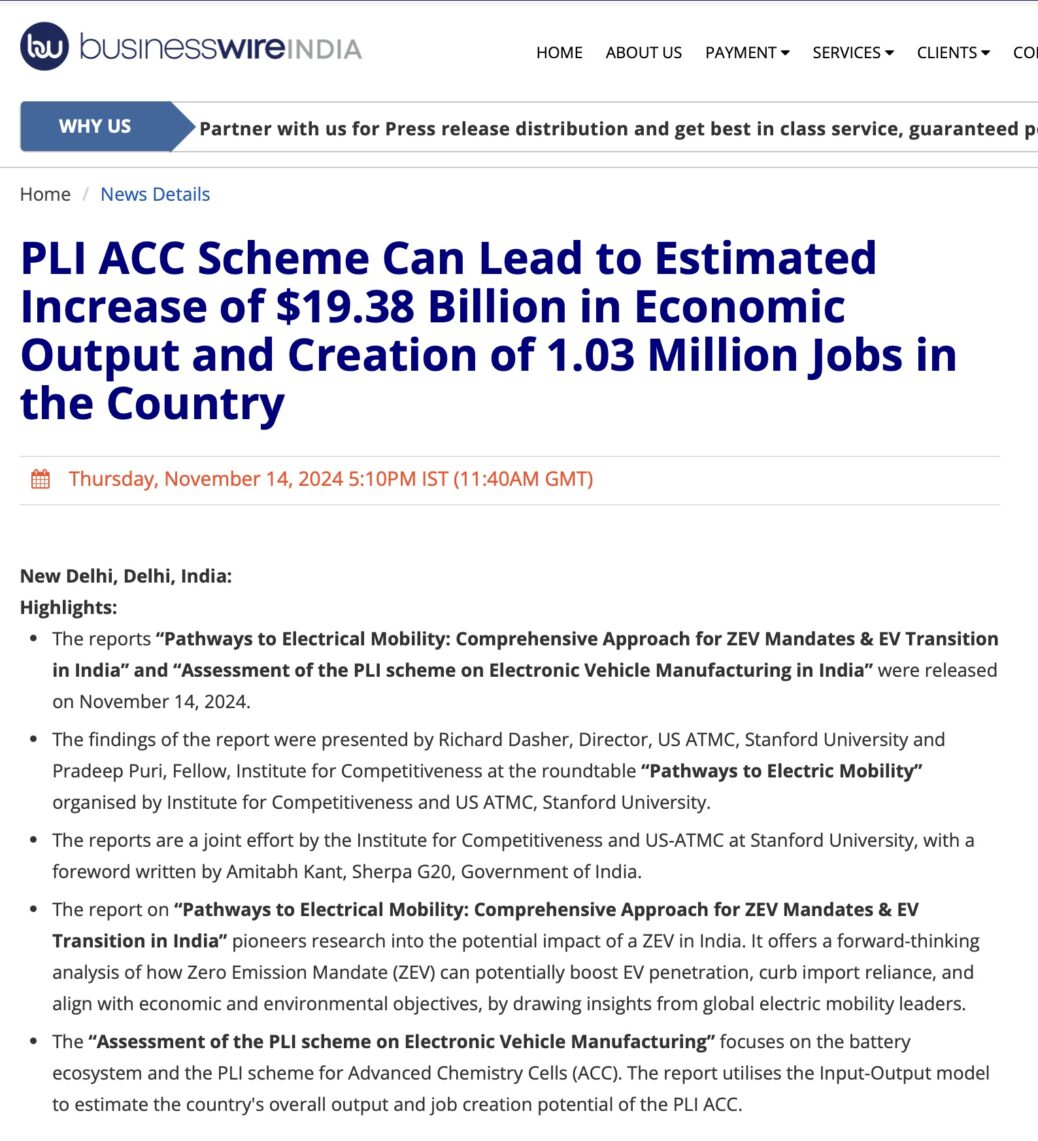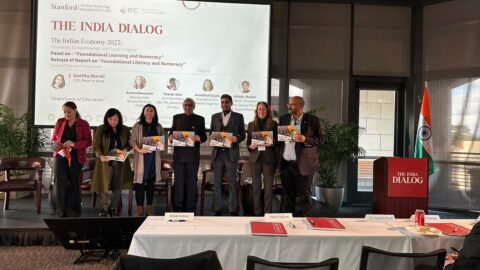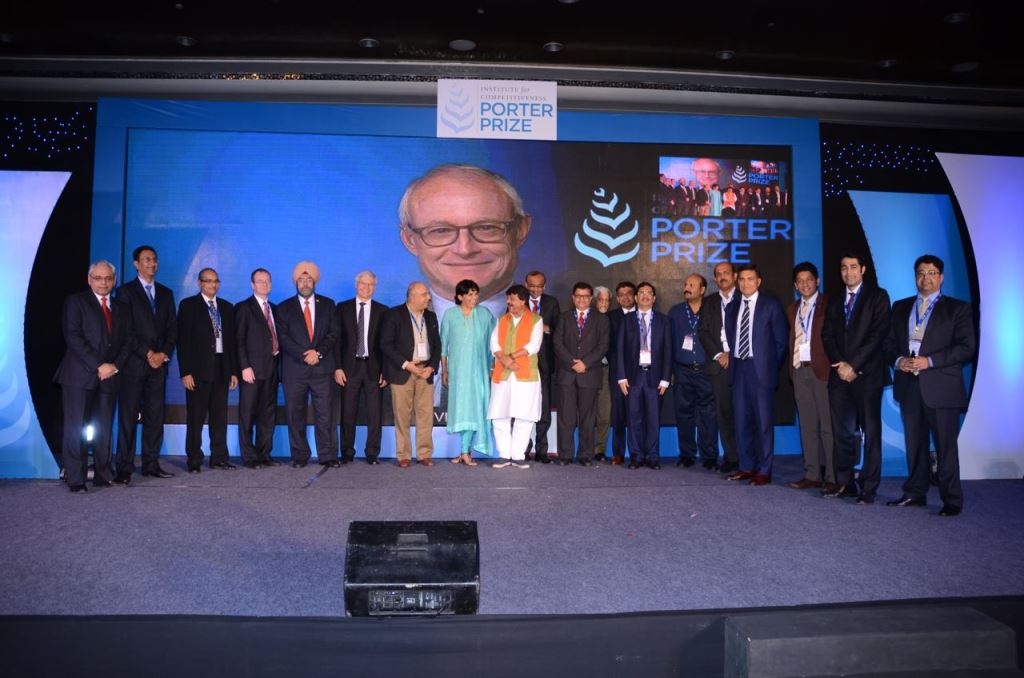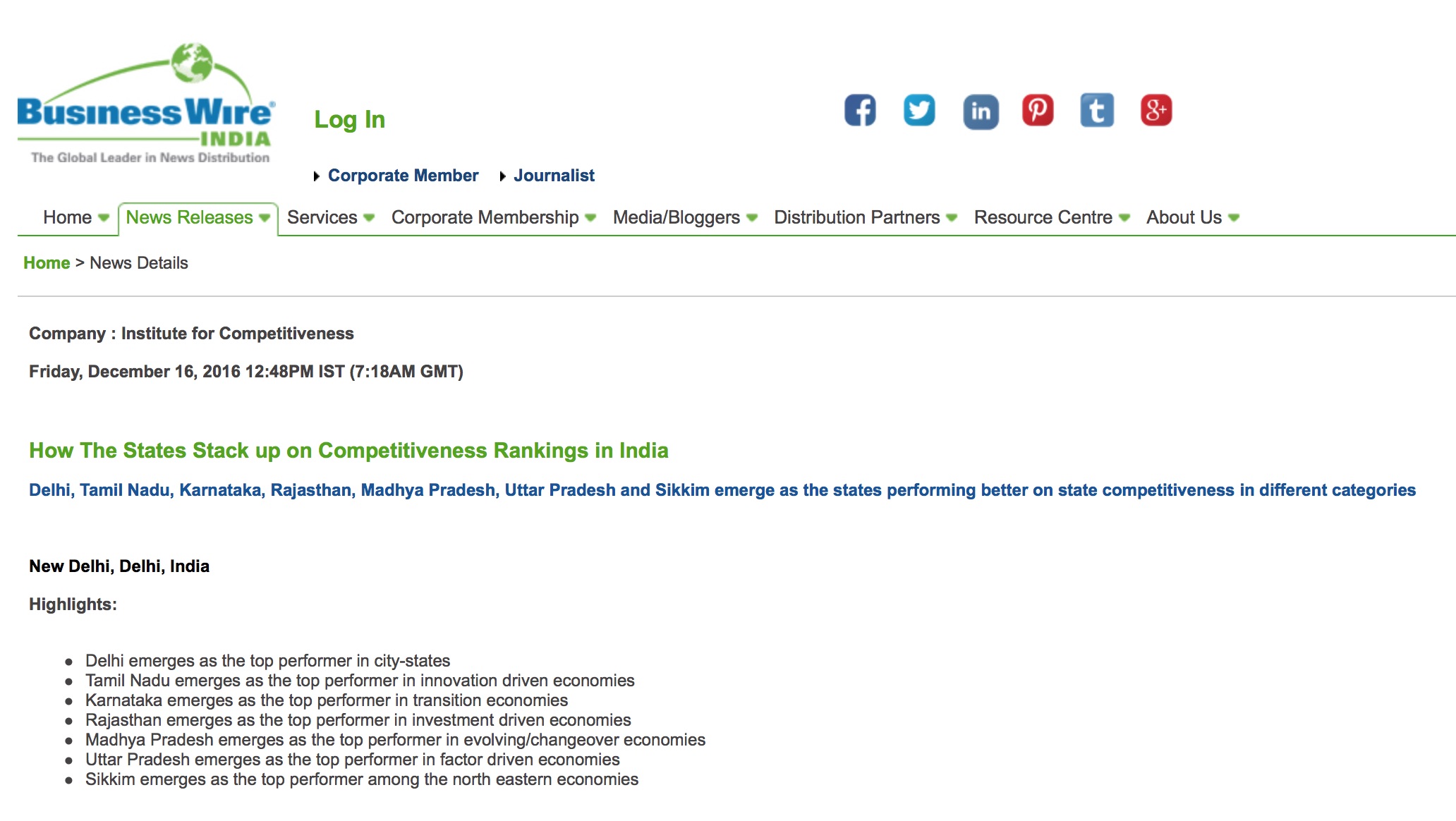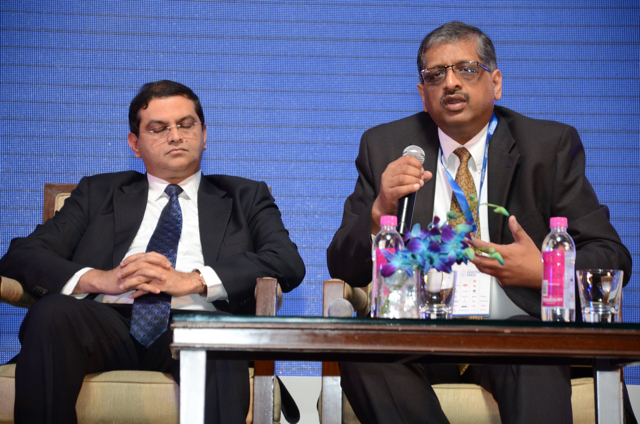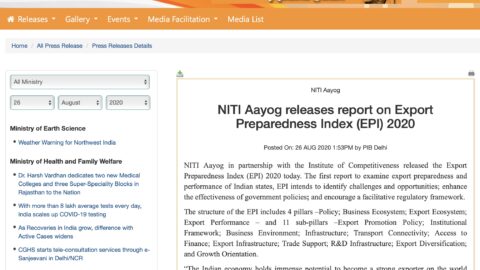Place: New Delhi
Time: 4:30 PM
Highlights:
- The reports “Pathways to Electrical Mobility: Comprehensive Approach for ZEV Mandates & EV Transition in India” and “Assessment of the PLI scheme on Electronic Vehicle Manufacturing in India” were released on November 14, 2024.
- The findings of the report were presented by Richard Dasher, Director, US ATMC, Stanford University and Pradeep Puri, Fellow, Institute for Competitiveness at the roundtable “Pathways to Electric Mobility” organised by Institute for Competitiveness and US ATMC, Stanford University.
- The reports are a joint effort by the Institute for Competitiveness and US-ATMC at Stanford University, with a foreword written by Amitabh Kant, Sherpa G20, Government of India.
- The report on “Pathways to Electrical Mobility: Comprehensive Approach for ZEV Mandates & EV Transition in India” pioneers research into the potential impact of a ZEV in India. It offers a forward-thinking analysis of how Zero Emission Mandate (ZEV) can potentially boost EV penetration, curb import reliance, and align with economic and environmental objectives, by drawing insights from global electric mobility leaders.
- The “Assessment of the PLI scheme on Electronic Vehicle Manufacturing” focuses on the battery ecosystem and the PLI scheme for Advanced Chemistry Cells (ACC). The report utilises the Input-Output model to estimate the country’s overall output and job creation potential of the PLI ACC.
The report, “Pathways to Electrical Mobility: Comprehensive Approach for ZEV Mandates & EV Transition in India”, examines factors responsible for the success implementation of Zero Emission Vehicle (ZEV) mandates in countries such as China, the United States, Norway, and the European Union. It analyses India’s automobile value chain and existing policy landscape to conclude that the high total cost of ownership due to high upfront costs, reliance on demand-side policies, and misalignment between electric mobility targets are the major obstacles in India’s EV transition. It analyses a shift toward integrative supply-side policies like the ZEV mandate that can address critical issues like high manufacturing costs and lack of technological innovation. Analyses for a shift toward integrative supply-side policies like the ZEV mandate, which analyses critical issues like high manufacturing costs and lack of technological innovation.
The report “Assessment of the PLI scheme on Electronic Vehicle Manufacturing in India” evaluates the existing value chain for manufacturing batteries in the country and highlights India’s lack of presence in upstream activities in battery production such as mineral procurement, refining and cell manufacturing. The report analyses the Production Linked Incentive (PLI) for Advanced Chemistry Cells (ACC), a crucial supply-side initiative, with a particular focus on boosting domestic EV battery production. Additionally, the report stresses the necessity of scaling up of investments to achieve the ambitious electric mobility targets. These investments, spanning the entire battery ecosystem from upstream mining to downstream production, are instrumental in constructing a seamless value chain that can lead to approximately 19 billion dollars increase in output and creation of 1.03 million jobs in the country.
In line with these reports, Shri. Amitabh Kant, G20 Sherpa, Government of India, states that the introduction of a ZEV mandate will help India combat two main impediments to electric mobility i.e. high upfront cost and lack of charging infrastructure. He emphasised the importance of investment and PLI ACC scheme for capacity building, localised production, and robust R&D initiatives.
Amit Kapoor chaired the roundtable discussion and started off the discussion by laying the foundation of the existing EV ecosystem, highlighting the disparity between India and the global leaders, especially China, and shifting focus towards supply side initiatives.
The findings of the reports were presented by Richard Dasher, Director, US ATMC, Stanford University & Pradeep Puri, Fellow, Institute for Competitiveness. Richard Dasher highlighted the importance of EVs as an indispensable part of the Automobile industry. He talked about the cost issues in the uptake of EVs, import dependency, the need for rapid increase in R&D and the participation of public and private stakeholders in the ecosystem. Pradeep Puri, stressed on the high taxation structures present in the country, that contribute to the high upfront cost of the EVs.
Ishtiyaque Ahmed, Senior Adviser, Industry & Foreign Investment, NITI Aayog, GoI regarded automobile industry as the backbone of the industrial revolution in India and has grown at a steady 7% CAGR. He highlighted the initiatives by the government such as FAME and PLI, and the need of bumping up R&D spending. He proposed a focused spending on priority segments of the automobile supply chain. Sudhendu Sinha, Adviser, Transport and Infrastructure, NITI Aayog, GoI lauded Indian Government to create PLI policy with high quality standards that will ensure world- class production of ACCs. He also mentioned the initiative taken by states by introducing tailored electric mobility policies.
The discussants for the round table included Stephen Ezell, Vice President, Global Innovation Policy, The Information Technology & Innovation Foundation, Pradeep Puri, Fellow, Institute for Competitiveness; Rajeev Saksena, Joint Secretary Investment, Department of Economic Affairs , Ministry of Finance, GoI; IV Rao, Distinguished Fellow, Transport and Urban Governance Division, The Energy and Resources Institute (TERI) ; Trupti Deshpande, Senior Programme Manager, Shakti Sustainable Energy Foundation; Akshay Sasikumar, CEO, 82Volt; Ashish Dokania, Founder, Green Tiger; Aditya Sinha, OSD Research, EAC-PM, Govt of India; Prashant Singh, Director, iSAARC; Mohit Gulyani, Co-founder, RecommerceX; Ishtiyaque Ahmed, Senior Adviser, Industry & Foreign Investment, NITI Aayog, GoI; Sudhendu Sinha, Adviser, Transport and Infrastructure, NITI Aayog, GoI. The roundtable discussion witnessed a holistic coverage of topics and poignant remarks on lithium policies, R&D, recycling, interoperability standards and the approaches to electric mobility in India
The reports recommend introduction of a ZEV mandate that will enable cohesive policy framework that will bring together stakeholder involved in upstream and downstream activities in the value chain. Strengthening domestic manufacturing and driving innovation especially in the battery ecosystem to reduce the import dependence is crucial. Along with this report stresses upon building high end charging infrastructure, public-private interaction and prioritising R&D in the nation.
The reports have been authored by Amit Kapoor, Chair, Institute for Competitiveness; Pradeep Puri, Senior Fellow, Institute for Competitiveness; Richard Dasher, Director, US Asia Technology Management Center, Stanford University; Nabha Joshi, Researcher, Institute for Competitiveness; Kartik, Researcher, Institiute for Competitiveness & Sheen Zutshi, Research Manager, Institute for Competitiveness.
About Institute for Competitiveness
Institute for Competitiveness, India is the Indian knot in the global network of the Institute for Strategy and Competitiveness at Harvard Business School. Institute for Competitiveness, India is an international initiative centered in India, dedicated to enlarging and purposeful disseminating of the body of research and knowledge on competition and strategy, as pioneered over the last 35 years by Professor Michael Porter of the Institute for Strategy and Competitiveness at Harvard Business School.
The press release can also be looked here.

